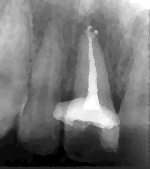Find endodontics hard? Rotaries confusing? Update your knowledge and practical skills in order to provide great root fillings with predictable results. Endodontics is difficult dentistry. Careful case selection and a superb recipe will help you identify and treat the easy/intermediate cases, avoid the pit falls, manage the problems and identify which teeth to refer.
Predictable Endodontics
Endodontics Made Ridiculously Simple
Wednesday 1st December 2010
Liverpool
6 Hours CPD
Presented by Mr Peter Smyth BDS, MSc
Programme
Start 9:30am
Teaching by brief presentations, demonstrations and hands-on experience of the practical skills.
We will cover the following:
Diagnosis of dental nerve disease and orofacial pain
How to treat toothache effectively
Identify easy, intermediate and complex endodontic cases
Equipment, materials, files, rotaries, irrigants
How to use bleach safely and effectively
Patient information, consent, anaesthesia, pre-emptive analgesia
How to prepare teeth for a root filling
Rubber dam for any tooth
The root filling recipe – access – determining working length – cleaning,
shaping with hand files/rotary instruments and obturation
Dressing & sealing teeth
When to use a reduced file selection
How to bleach discoloured anterior teeth
Refreshments and lunch are provided
4.30pm finish
To reserve your place
Please call Hannah Jane on 0151 423 1601
Or email us via the contact form on this web site
Cost £99, please make cheques payable to: Cheshire Smile Clinic, post to Hannah Jane, Cheshire Smile Clinic, Hunts Cross Dental Centre, 14 Mackets Lane, Hunts Cross, Liverpool L25 OLQ.
To pay by credit card please call Hannah Jane. Closing date 2 weeks before course date.

